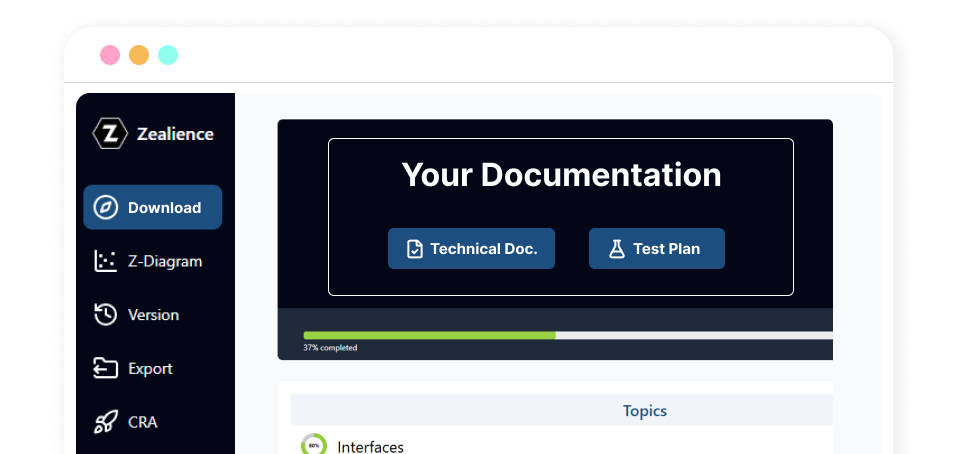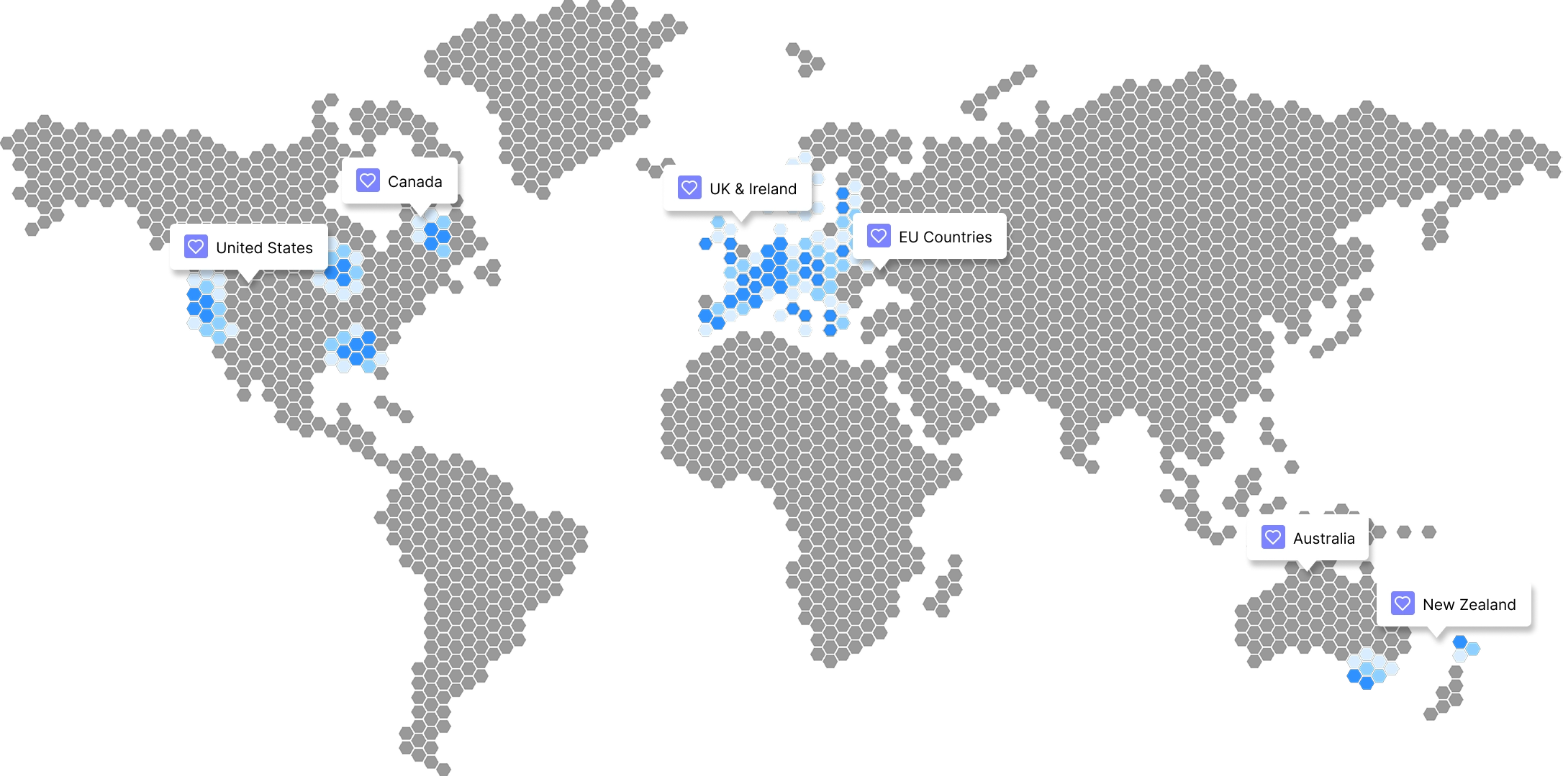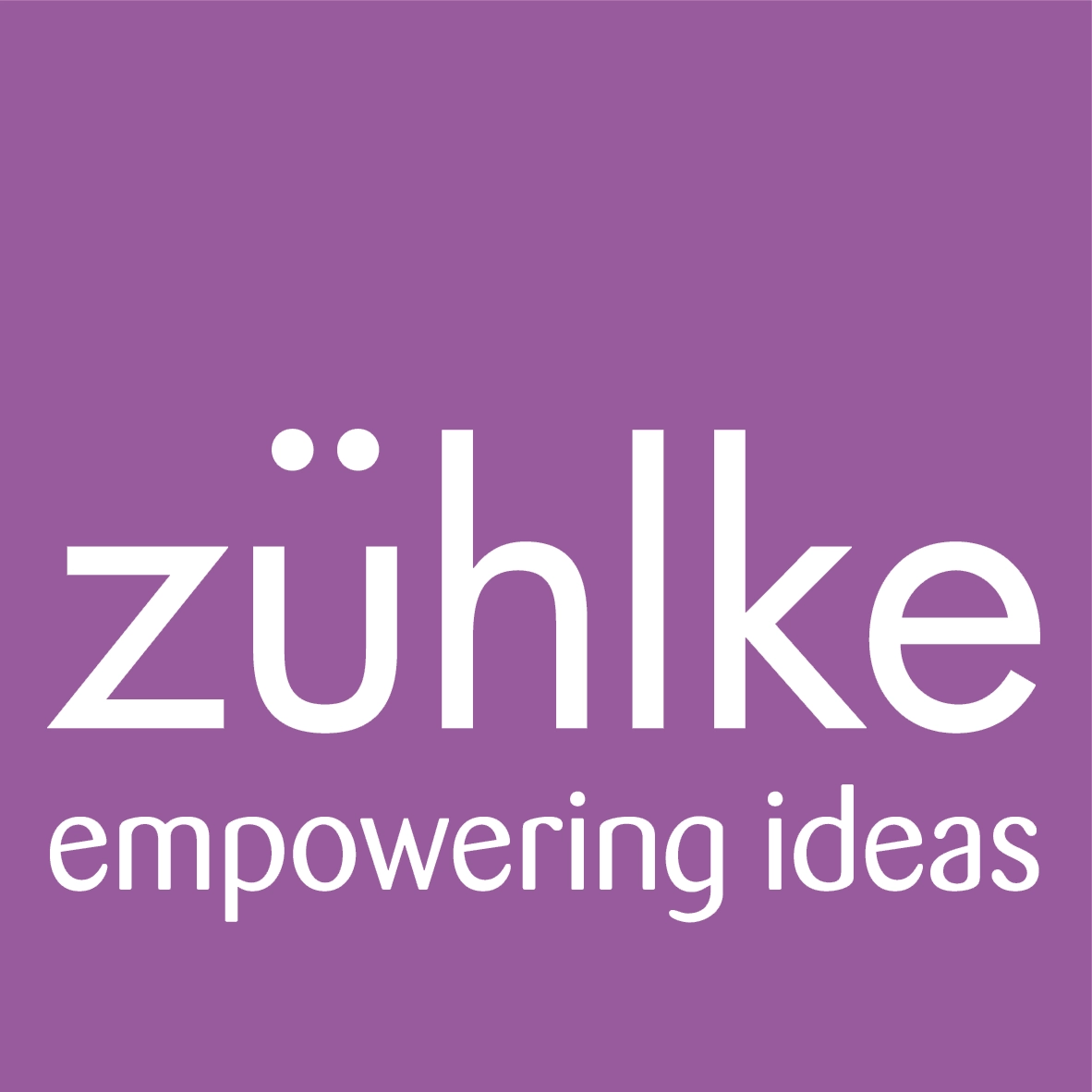✨ Our logo has changed to the kingfisher, Zealie ✨
EN 18031 & CRA
Compliance
Automated.
Say goodbye to the time-consuming task of manually creating compliance documents. Z-CMS helps you save up to 90% in time and costs.
Creating compliance documents
doesn't have to be painful
Manual compliance
12 months of project duration
Read 600 pages of standards
Never-ending manual Excel input
Many mistakes and non-compliance
High compliance cost

Zealience Z-CMS
1 - 2 month of project duration
Step-by-step guidance
Simply fill in Q&As
High-quality compliance documents
Low & predictable compliance cost

Faster compliance is
your competitive advantage
Z-CMS workflow lets you
supercharge your compliance
From RED DA to CRA
Here's what you get
For the RED DA
Outputs
- Technical Documentation (.xlsx)
- Test Plans (.docx)
- Relational diagrams of Technical Documentation (.md)
- Real-time compliance dashboard
- Task management dashboard
Supported
- EN 18031-1
- EN 18031-2
- EN 18031-3
- Every requirement including GEC-1 (vulnerability management) is supported
For the CRA
Outputs
- Comprehensive gap analysis report (in Z-CMS and .pdf)
- Task management dashboard
- More to come throughout 2026
Supported
- prEN 40000-1-3* (Vulnerability handling requirements)
- prEN 40000-1-4* (Product requirements)
- Annex II (Information and Instructions to the User)
- * based on available information.
Z-CMS testimonials by
our happy 😄 customers
Thank you for trusting us
Helping customers worldwide

















